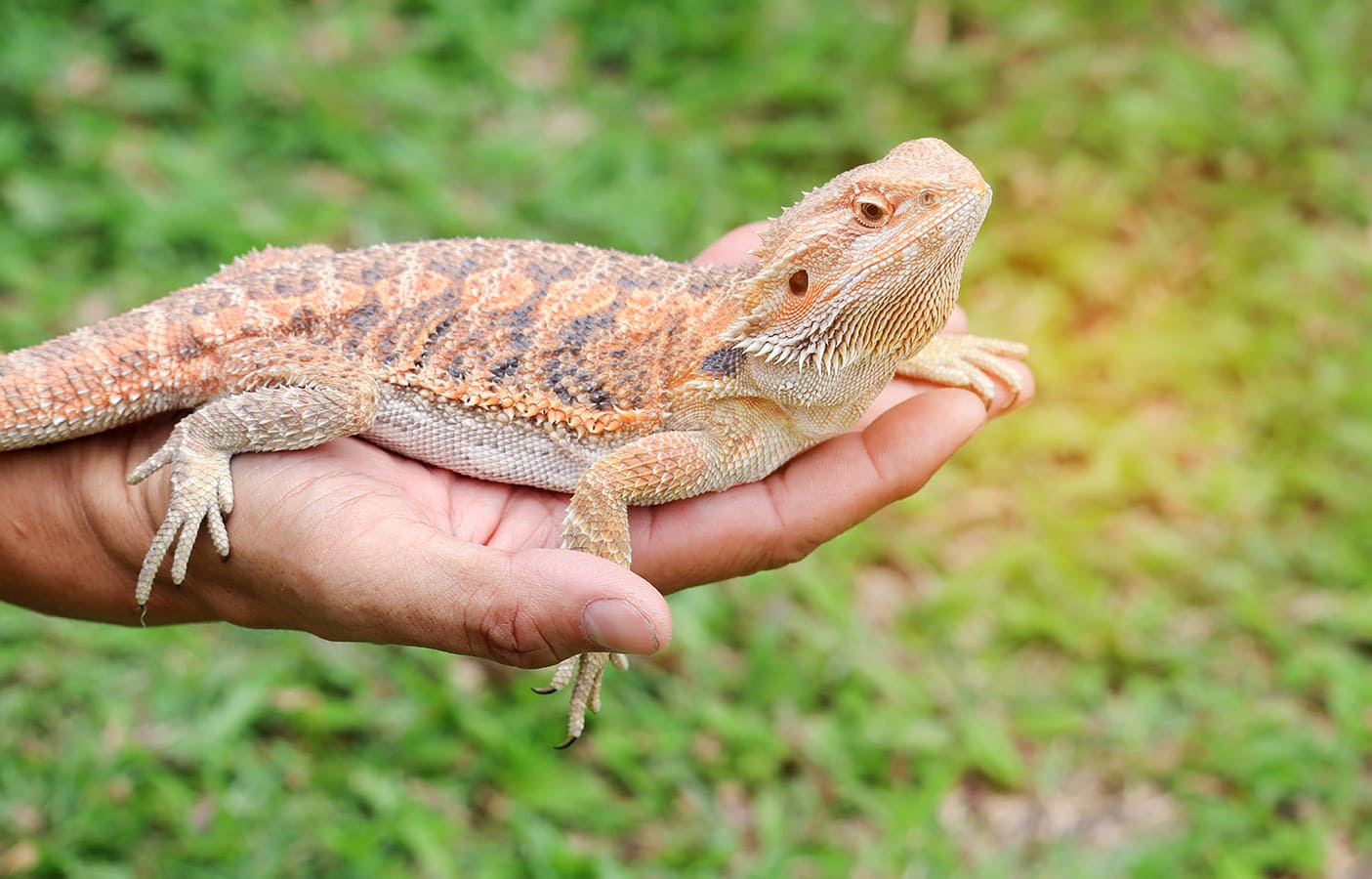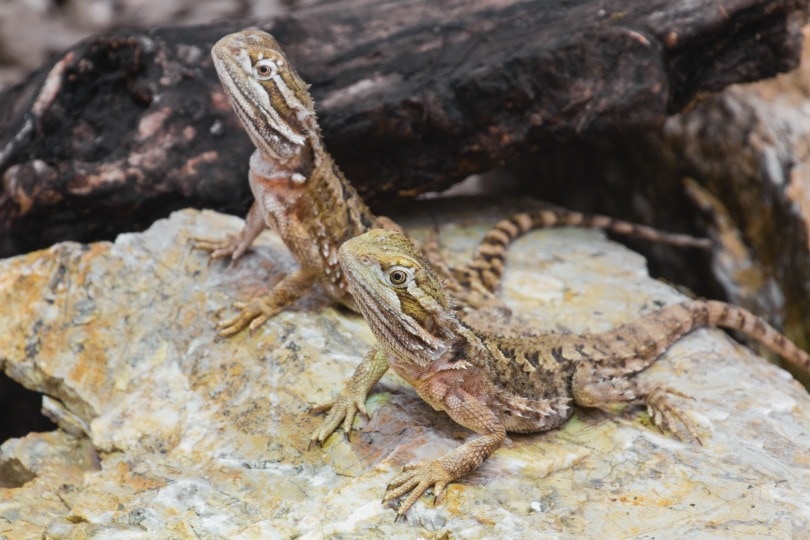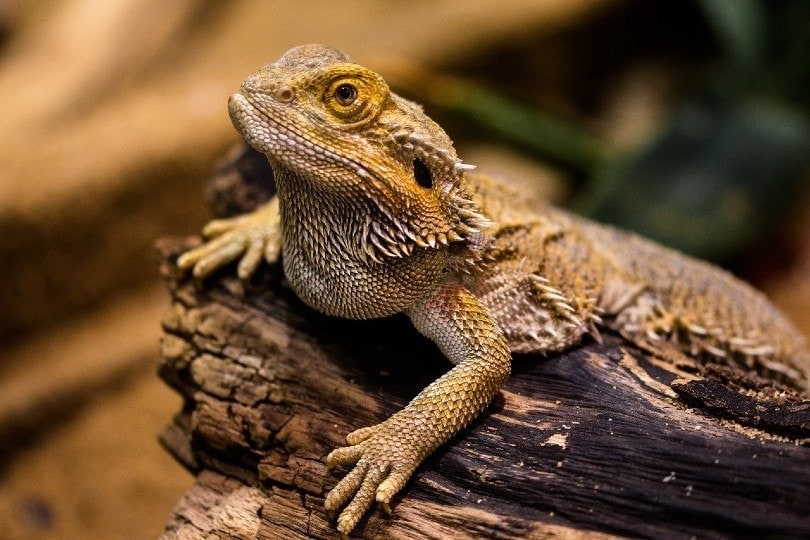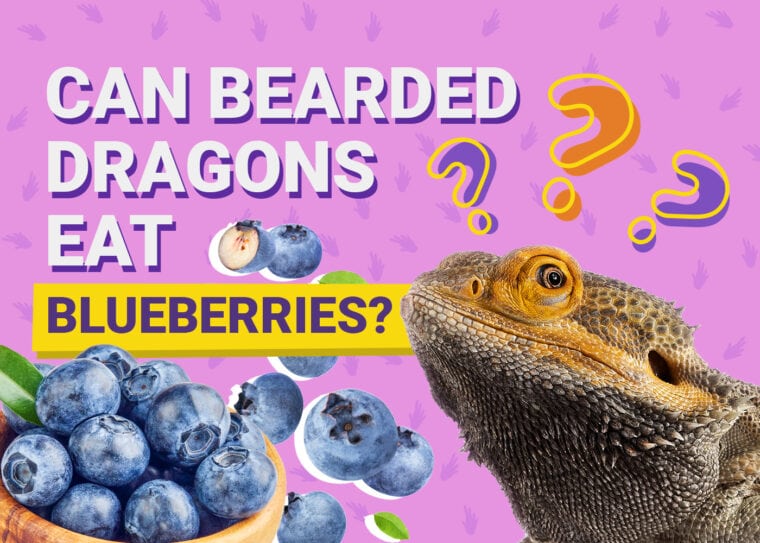
Bearded dragons belong to a genus of eight reptiles known as Pogona from the Greek word pōgōn, which means “ the beard”. And that’s how these beloved lizards received their common name.
Aside from their fierce name, they can be just as rewarding as a pet when compared to other reptiles or lizards . But what about their diets? Can they eat blueberries?
Yes! Bearded dragons can eat blueberries. These little berries can provide nutritional benefits for your pet. However, like all fruits, it is best to utilize blueberries as a treat, and not a meal or dietary staple in their diet.
Let’s take a look at a typical diet for bearded dragons and how to incorporate blueberries into it.

What do Bearded Dragons Usually Eat?
Wild bearded dragons are highly adaptable, opportunistic predators. During periods of time where prey is abundant, they will actively hunt insects and other arthropods. They supplement their diet with vegetation as needed. In times where prey are scarce, they will eat more vegetation to sustain themselves. Because they are native to deserts, they don’t come across fruit that often in the wild.
The nutritional needs of pet bearded dragons aren’t the same as those of their wild cousins, and it’s inaccurate to feed them exactly how one would observe a wild bearded dragon eating. As pets, they don’t have to hunt for food, and they don’t have to put up with periods of uncertainty, weather conditions, competition from their conspecifics, and predators. This means that they also have different nutritional requirements.
The diet composition of bearded dragons kept as pets varies according to their age. Please note that the guidelines that follow are a rough estimation. Individual needs may differ for your pet, and you should always consult your veterinarian for a nutritional plan that is appropriate for your pet.
Many veterinarians consider adult bearded dragons to be herbivorous from a medical perspective, even though their diet still requires some portions of animal protein. The current guidelines for their calcium and phosphorus requirements are in line with those of a herbivorous reptile. 1
From a strict sense though, they are still considered omnivores and indeed, their diet and nutritional requirements change even throughout their adult life.
Owners that adopt bearded dragons for the first time are often caught off guard when they realize that insects and worms won’t suffice as the months pass and their young pet begins to mature. The adjustment to an adult nutritional composition requires the addition of safe to consume fruits and vegetables into their diet.
Between fruits and vegetables, vegetables are preferred for a bearded dragon’s diet. This is because most fruits have sugars which aren’t great for a pet bearded dragon in excess. In addition, many fruits fail to meet the calcium requirements of bearded dragons. Furthermore, most vegetables offer better fiber than fruits though. That being said, variety in your bearded dragon’s culinary profile is an absolute necessity.
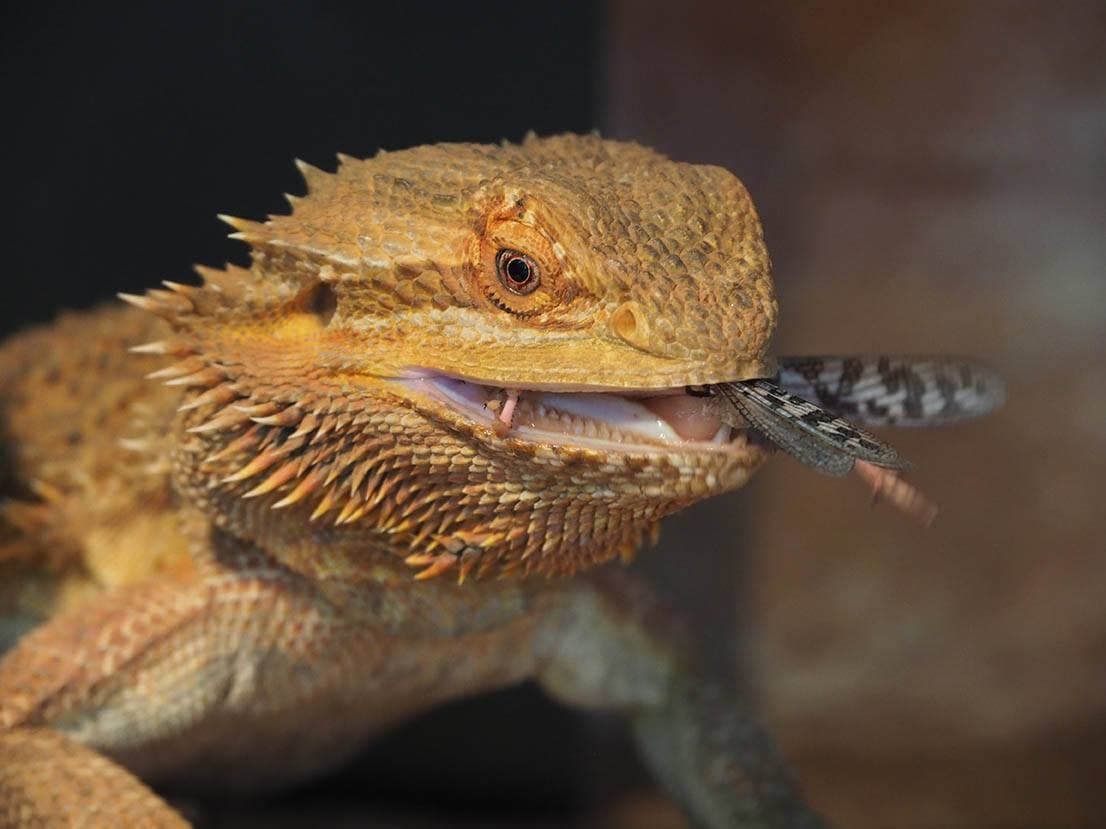

Blueberry Nutritional Analysis
Most bearded dragons love blueberries. So, you shouldn’t have any problem getting your lizard to eat them. Blueberries contain several benefits for bearded dragons2:
Like most berries, blueberries contain many antioxidants, which are beneficial for your pet. They contain other vitamins and minerals which may offer some benefits to your bearded dragon as well. In addition, they are exceptionally low in oxalates and goitrogens – compounds which are undesirable for bearded dragons.
Furthermore, blueberries are also lower in sugar than some other fruits. This is preferred since bearded dragons should not have a diet that is high in sugar. However, it is important to keep in mind that intrinsically, almost all fruit (including blueberries) contain undesirable levels of sugar.
Blueberries are not without their downsides. These include the following:
The key nutritional takeaway is that blueberries are a beneficial source of antioxidants, vitamins, and minerals when offered to your pet in moderation.

Feeding Bearded Dragons Blueberries

How Many Blueberries Can They Eat?
The number of blueberries a bearded dragon can eat depends on the diet they eat throughout the day. The rule of the thumb is to offer blueberries or any kind of fruit as a treat, perhaps once a week or so. Each serving should consist of about 1-2 berries, at most. It is best to offer your pet a high amount of variety in their diet rather than just offering them blueberries as the sole fruit.
Just like any food though, you need to keep portion control in mind. While blueberries are chock full of healthy vitamins and minerals, they’re also somewhat high in sugar.

Conclusion
It is completely safe to feed your bearded dragon blueberries. In fact, you may find that it is actually one of their favorite things to eat. However, it is also important to be cautious when feeding them. Like all fruits, blueberries should be considered a treat.
Make sure you only give them raw, fresh, clean and washed blueberries. However, be sure to practice portion control and don’t feed them too many, as fruits should be considered a treat for them.
Featured Image Credit: Pixabay

